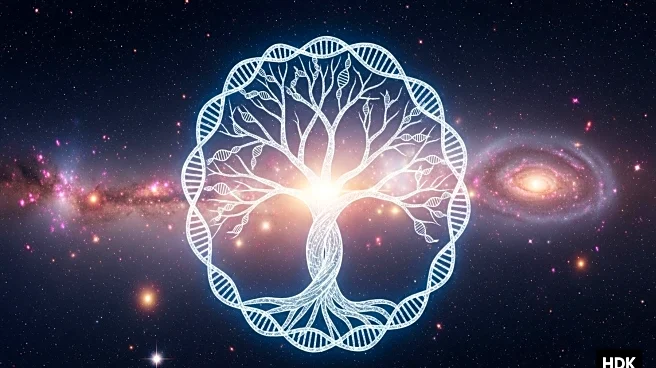What's Happening?
A recent study published in Nature Ecology & Evolution suggests that the Last Universal Common Ancestor (LUCA) of all life on Earth existed 4.2 billion years ago, earlier than previously thought. LUCA is believed to be a prokaryote-like organism that represents the ancestor of all living things. The study, conducted by an international team of scientists, used genetic analysis to trace LUCA's timeline, revealing that it lived during the Hadean Eon, a period characterized by extreme geological conditions. The research also indicates that LUCA may have had an early immune system, suggesting it was capable of fighting off primordial viruses.
Why It's Important?
Understanding LUCA's existence and characteristics provides crucial insights into the early evolution of life on Earth. This research challenges previous timelines and offers a new perspective on how life began and evolved under harsh conditions. The findings could impact studies on the origins of life, influencing theories about how life forms adapt and survive. By exploring LUCA's environment and physiological traits, scientists can better understand the processes that led to the diversity of life seen today.
Beyond the Headlines
The study of LUCA not only sheds light on the biological history of Earth but also raises questions about the potential for life on other planets with similar conditions. The existence of an immune system in such an ancient organism suggests complex interactions with its environment, hinting at early ecological systems. This research may inspire further exploration into the resilience and adaptability of life, both on Earth and beyond.








